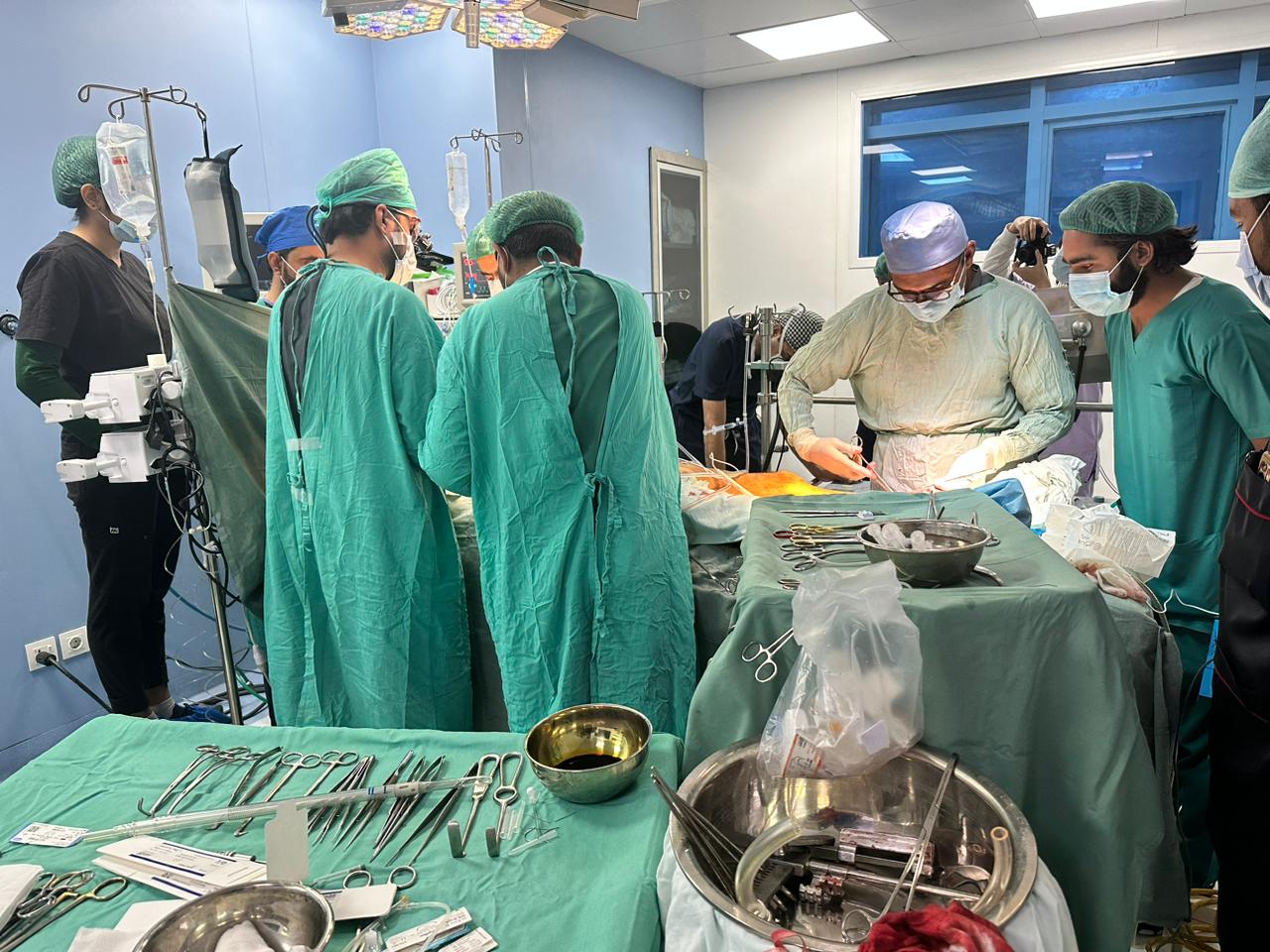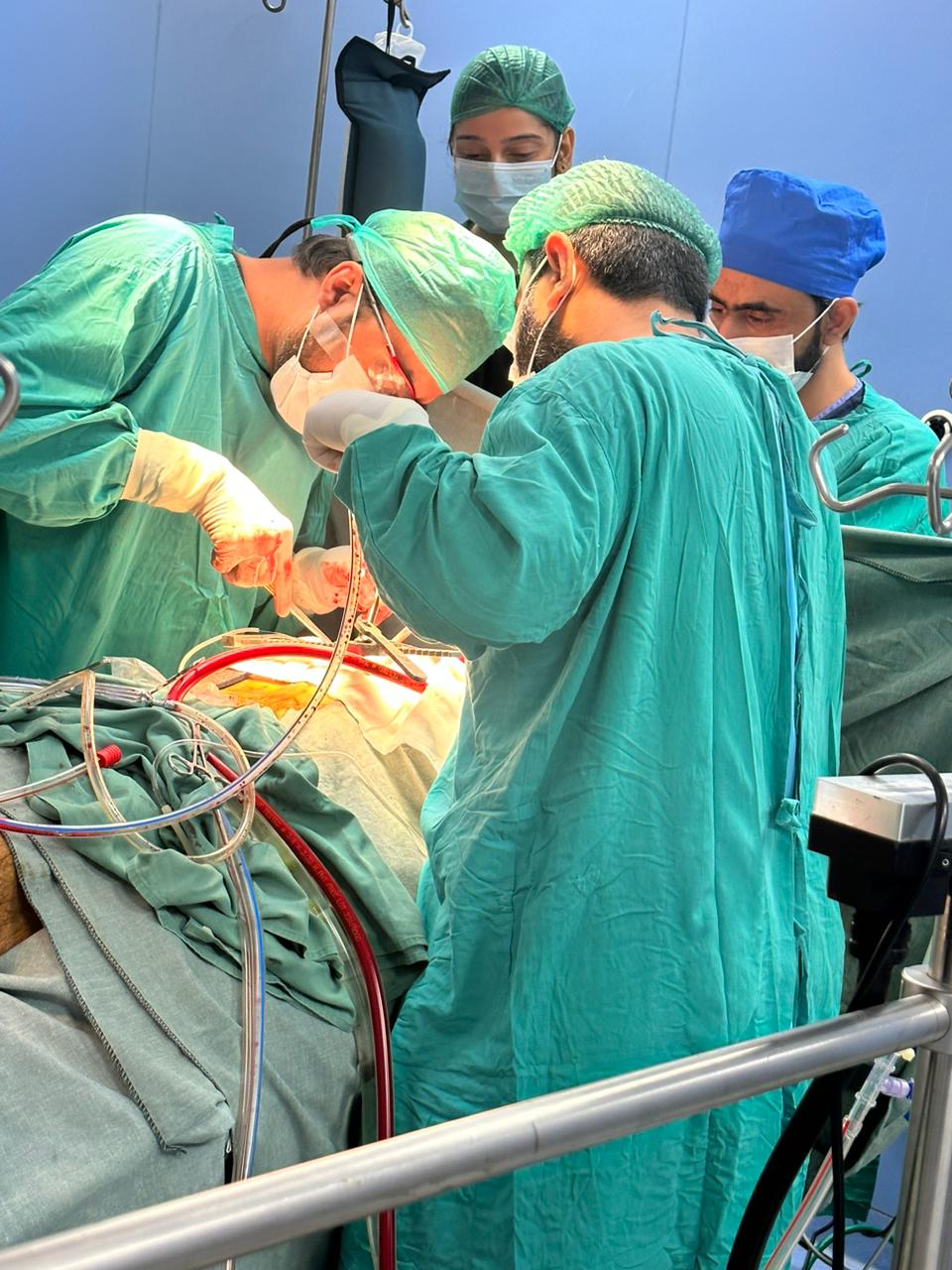Cardiac Surgery in Islamabad
The cardiac department one of the Med City International Hospital has best cardiologists in Islamabad to meet the quality health care needs of heart disease. Supported by medical personnel (such as heart doctors and cardiac surgeons), paramedics and professional non-medical officers. This heart and blood vessel service center is equipped with modern equipment operated by heart doctors and trained heart surgeons equivalent to heart hospital services.
Med City International Hospital, as one of the best cardiology hospital Islamabad has a complete heart health service that starts from  prevention, early detection, diagnosis, treatment, cardiac surgery procedures, until rehabilitation.
prevention, early detection, diagnosis, treatment, cardiac surgery procedures, until rehabilitation.
Our specialist doctors at the Med City International Hospital completed their specialization programs in the United States, United Kingdom, Canada, Australia and Belgium. They are specialist doctors dealing with cardiovascular treatment, endovascular specialists, cardiac surgeons, cardiac rehabilitation specialists, as well as other subspecialty doctors such as pediatric cardiologists. With the large number of patients seeking treatment at Med City, our specialists have experience in dealing with cases of complicated heart problems from almost all the age groups.
Our doctors are also assisted by professional nurses, pharmacists and other supporting staff who have been professionally trained.
What is Cardiology?
Cardiology is concerned with the cardiovascular system, that is to say with the heart and the vessels (arteries and veins), with the prevention as well as the treatment of the anomalies and the diseases which affect it: high blood pressure, heart failure, cardiac arrhythmias, angina pectoris, atherosclerosis … The cardiologist may be required to intervene urgently, especially in case of myocardial infarction.
When To See a Cardiologist
Except in case of emergency, it is the attending physician to refer his patient to a cardiologist if he deems it necessary. In cardiology, prevention is essential, especially for people at risk: diabetics, overweight patients, hypertensive patients, hypercholesterolemia patients, smokers, etc. Today, cardiovascular diseases remain the leading cause of death in the world in women in front of tumors.
What Does the Cardiologist Do?
The cardiologist questions the patient about his lifestyle and his medical and family history. He conducts cardiac and pulmonary auscultation and measures blood pressure. The more risk factors there are, the more the examination is pushed. To see the heart rate and detect any abnormality, he can perform an electrocardiogram. A stress test can also be performed. If necessary, he recommends complementary examinations. Cardiac and / or vascular ultrasound, coronarography, scintigraphy or MRI.
How is Cardiac Treatment Going?
The management of cardiovascular problems usually goes first, in the first place, by an improvement of the lifestyle (diet, physical activity, reduction of stress). The medical management can be, for its part, medical or surgical.
In full swing, interventional cardiology is a special form of surgery. Realized in emergency or not, the interventional cardiology makes it possible to treat certain affections (coronary and valvular pathologies, malformations …) by endovascular way, that is to say by passing miniaturized surgical instruments inside an artery or a vein. In case of urgent care, the patient may be admitted to the intensive care unit.
that is to say by passing miniaturized surgical instruments inside an artery or a vein. In case of urgent care, the patient may be admitted to the intensive care unit.
Rhythmology is also a specialty in cardiology that supports heart rhythm disorders by several techniques:
Implementation of stimulators and defibrillator cardiac, the first to prevent excessive slowdown of the heart, and the second rapid rhythm disorders, putting the life of the patient in danger.
Radiofrequency Ablation of Rapid Rhythm Disorders which involves exploring the electrical activity of the heart through catheters to identify the heart tissue responsible for rhythm disorders. An electric radiofrequency current is then delivered to this tissue to restore the normal rhythm of the heart.
Have A Question?
Tell us about your case below







